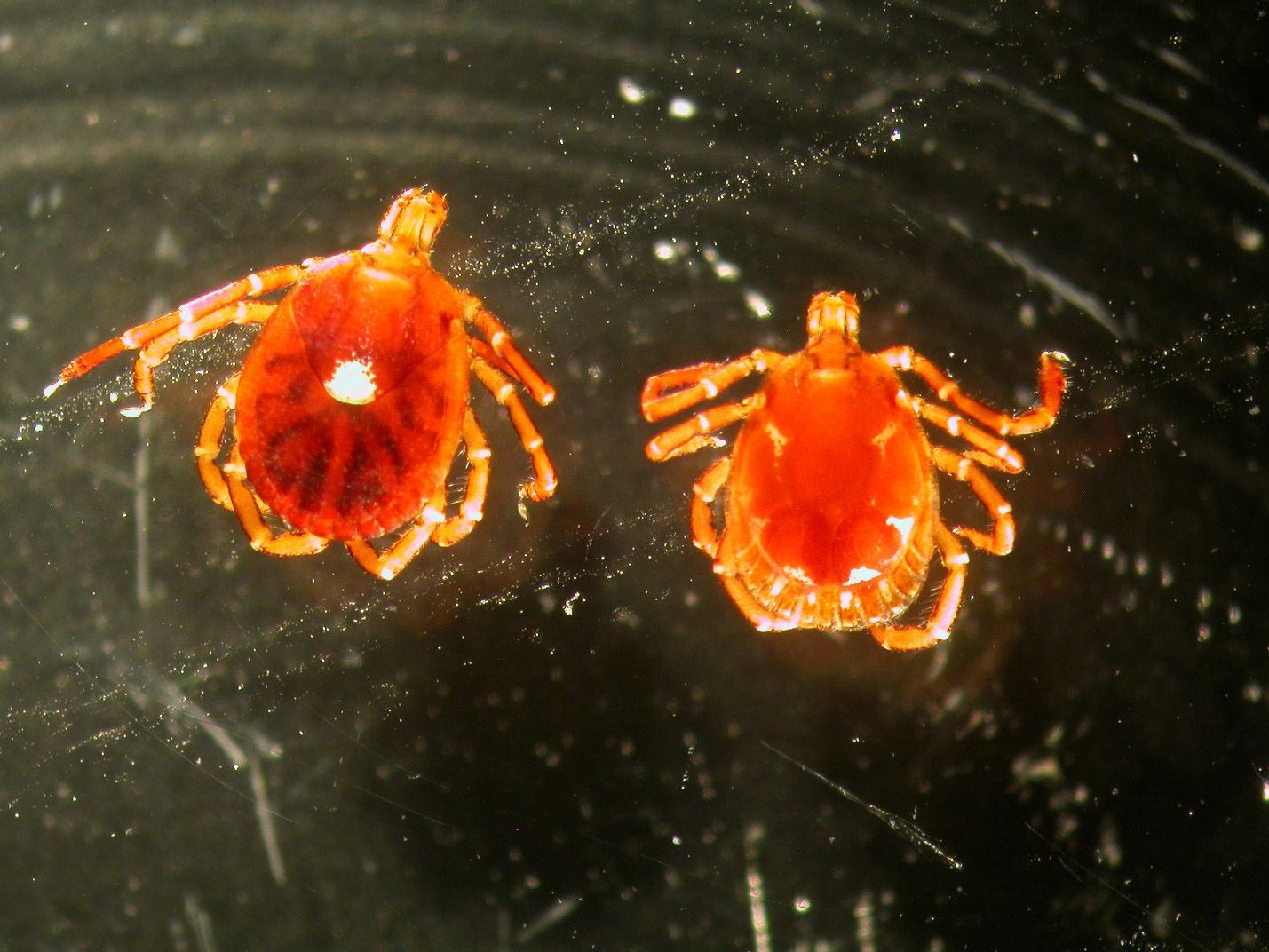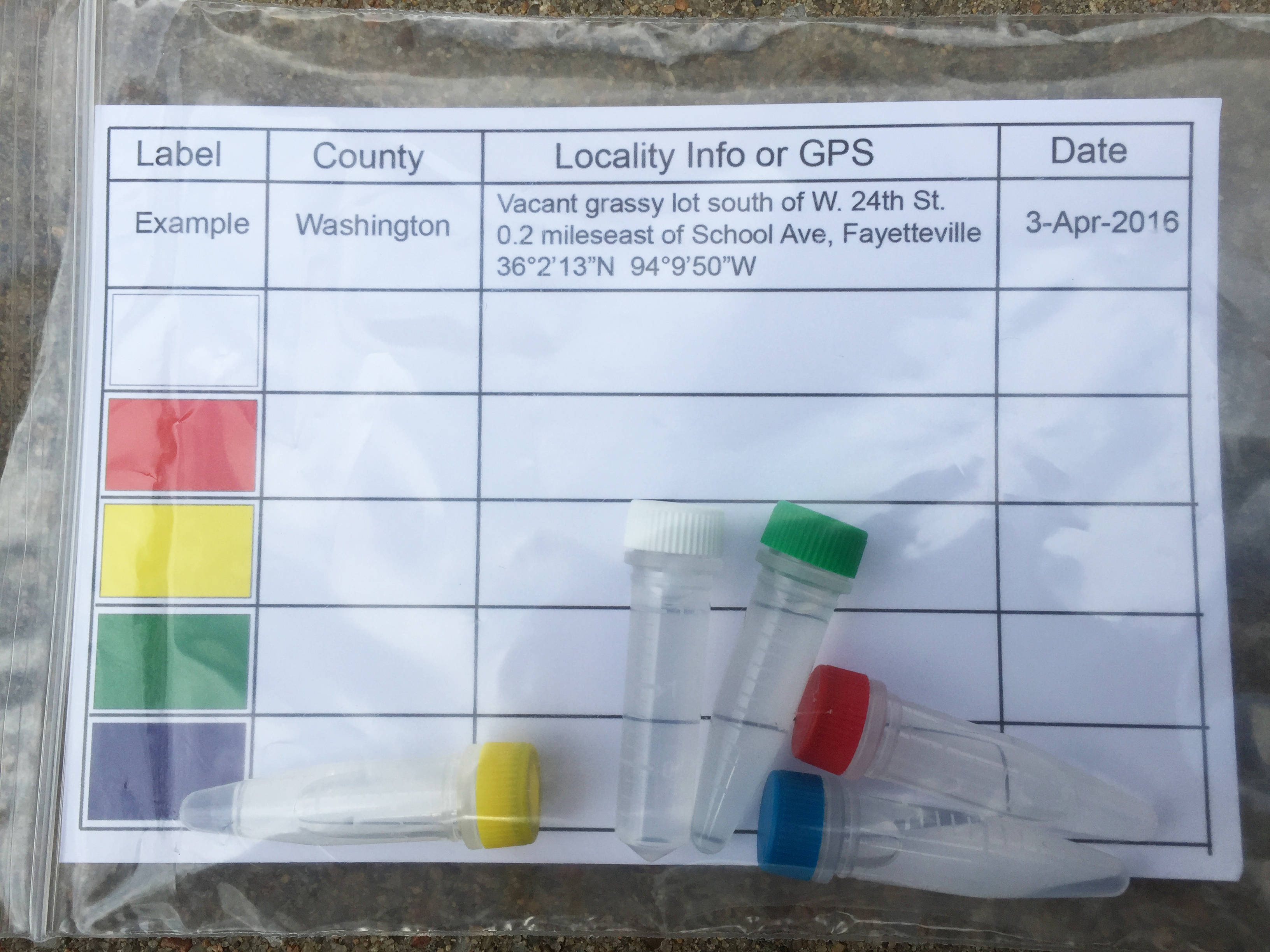Public asked to collect ticks as part of study of insect-borne diseases
May 23, 2017
By Mary Hightower
U of A System Division of Agriculture
Fast facts:
- Study funded by Arkansas Biosciences Institute grant
- Study not intended for tick-disease diagnosis
- Results to be published after third year
(430 words)
(newsrooms: with art www.flickr.com/photos/uacescomm/34683218202, www.flickr.com/photos/uacescomm/32380478374
Video from agent: https://twitter.com/uaex_pikeag/status/866770541826408454 )
(Download Word version)
RUSSELLVILLE, Ark. – It’s hard to avoid blood-sucking ticks when the weather gets warm, but the University of Arkansas System Division of Agriculture wants you to use that to your advantage as part of a statewide citizen-scientist study of ticks and the diseases they carry.
“This project will provide much-needed statewide information on tick distribution and the diseases they carry,” said Kelly Loftin, an extension entomologist with the University of Arkansas System Division of Agriculture. “There have been a few previous tick and tick-borne disease studies conducted in Arkansas, most have been small scale - concentrated on one disease, a region or a certain tick species.”

“Anyone can collect samples,” he said. “Hunters who find live ticks on harvested deer; hikers, gardeners and folks who are active in the outdoors; pet owners whose dogs or cats have some hitchhikers, and anyone with an interest in being part of a statewide science project that will provide some important answers for questions surrounding this public health issue.”
The collection period runs from May through the end of deer season this year.
Tick-borne disease came to the fore this year after the state Health Department confirmed two cases of Lyme disease in Arkansas. However, each year in Arkansas hundreds of cases of tick-borne diseases are reported including Ehrlichiosis, spotted fever, anaplasmosis and tularemia. Gov. Asa Hutchinson signed a proclamation declaring May Lyme- and tick-borne disease awareness month.
Loftin said the Division of Agriculture is distributing collection kits to all of its county extension offices. The kits include instructions on removing live and intact specimens and vials in which to place the collected ticks. It’s important that the collected ticks still retain their mouth parts, he said.
The study is not intended to diagnose individuals who suspect they might have contracted a tick-borne disease.
“The study will identify areas with a high tick-borne disease risk,” he said.

The study has an educational component as well.
“This is an opportunity to learn about the species and life cycle of this common Arkansas scourge and how to protect one’s self from diseases spread by ticks,” he said.
The study is funded by a grant from the Arkansas Biosciences Institute. Tick identification and polymerase chain reaction analysis will be conducted by entomology faculty and students of the Arkansas Agricultural Experiment Station, the research arm of the Division of Agriculture. The study is in its second year, and results will be published after its third and final year.
Those collecting ticks will be asked to provide GPS coordinates or name of the park, address or a permanent landmark for where the ticks were found. The collectors will remain anonymous.
For more information about the project, contact your county extension office. (See uaex.uada.edu/counties).
About the Division of Agriculture
The University of Arkansas System Division of Agriculture’s mission is to strengthen agriculture, communities, and families by connecting trusted research to the adoption of best practices. Through the Agricultural Experiment Station and the Cooperative Extension Service, the Division of Agriculture conducts research and extension work within the nation’s historic land grant education system.
Pursuant to 7 CFR § 15.3, the University of Arkansas System Division of Agriculture offers all its Extension and Research programs and services (including employment) without regard to race, color, sex, national origin, religion, age, disability, marital or veteran status, genetic information, sexual preference, pregnancy or any other legally protected status, and is an equal opportunity institution.
# # #
Media Contact: Mary Hightower
Dir. of Communication Services
U of A System Division of Agriculture
Cooperative Extension Service
(501) 671-2126
mhightower@uada.edu
Related Links